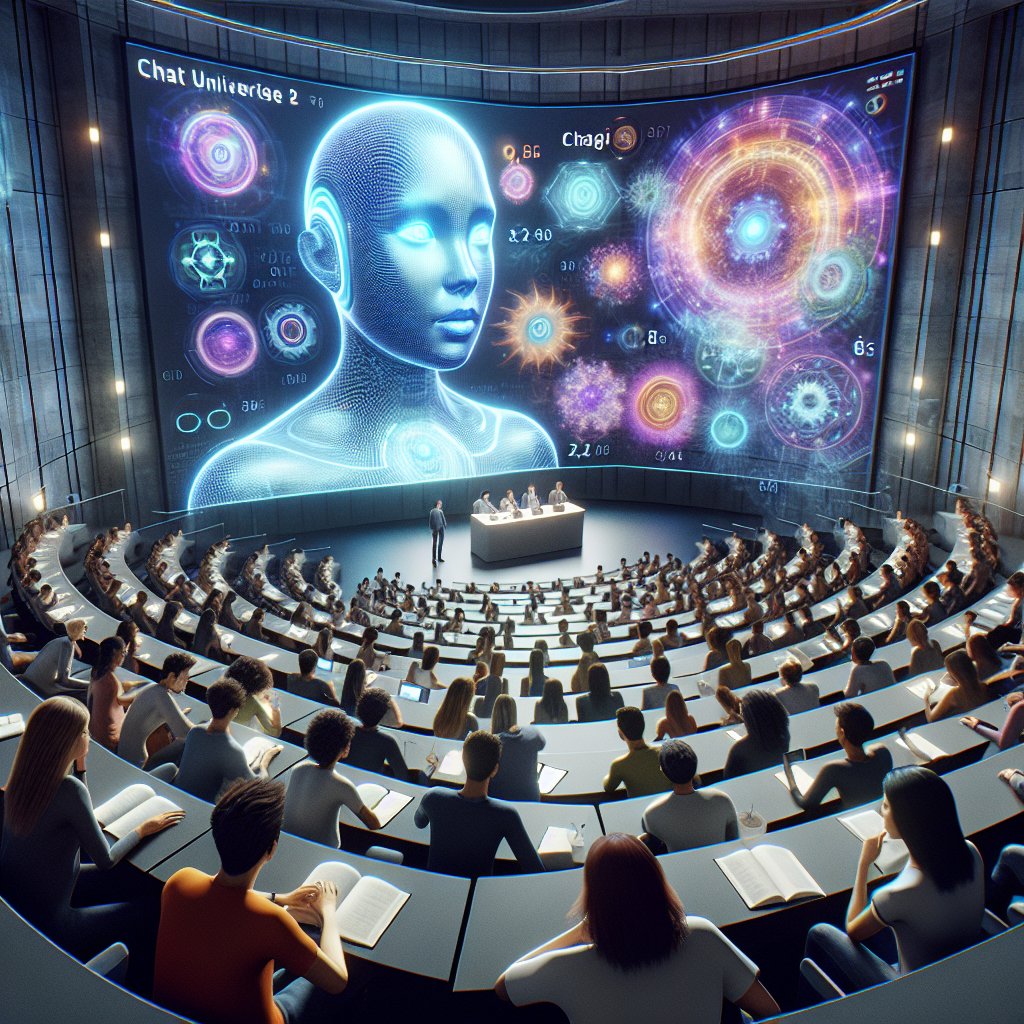How ChatGPT Challenges the Way We Assess University Degrees: A Call for Educational Reform
In a world increasingly fascinated by artificial intelligence (AI), one pressing question has emerged: Can AI compete on equal footing in human-centric domains like higher education? Specifically, can ChatGPT—a conversational AI model developed by OpenAI—pass an undergraduate physics degree? While this might sound like a curious experiment at first, it's a study that has profound implications for the future of education and how we assess learning. Researchers Kevin A. Pimbblet and Lesley J. Morrell take on this challenge, and their findings suggest it's time we rethink how degrees are awarded.
Can AI Replace Students? A Look into the Experiment
Kevin A. Pimbblet and Lesley J. Morrell set out to test the capabilities of ChatGPT against the rigorous demands of a full UK Physics undergraduate degree. They used various techniques—including modifying questions and using AI-enhancing tools—to optimize ChatGPT's performance. The study wasn't just about seeing if ChatGPT could answer questions correctly; it was about pushing the boundaries of what AI could achieve in a structured academic setting.
The Versatile Yet Imperfect Capabilities of ChatGPT
As it turns out, ChatGPT shows remarkable prowess in certain tasks like simple computations, coding tasks, and basic problem-solving exercises. These are areas where straightforward, rule-based commands work well. However, it faltered in more nuanced domains, such as complex multi-step problems, interdisciplinary challenges, and tasks requiring intricate human insight.
For instance, one area where ChatGPT particularly struggled was laboratory work. Being an AI, it obviously lacks the physical presence required for hands-on experiments. Similarly, it failed in vivas—oral examinations that test not just knowledge but the ability to think on one's feet and articulate concepts clearly.
A Call for Educational Reform
Given these limitations, Pimbblet and Morrell suggest that the very structure of academic assessment needs a shake-up. It's not just about installing better invigilation during exams but reshaping the curriculum to incorporate AI tools authentically. They propose two paths for educational reform:
Robust Assessments:
This approach would emphasize in-person exams, vivas, and practical lab work—tasks that are difficult for an AI to circumvent. This ensures that students genuinely master the subject matter rather than merely outsourcing their exams to AI.Integration of AI Tools:
Instead of treating AI as an academic adversary, it could become a learning aid. Teaching students how to critically engage with these technologies can cultivate essential skills for the future workforce. However, this requires well-designed assessments that reflect not just a student's ability to solve problems but also their understanding of AI's capabilities and limitations.
Practical Implications and Real-World Applications
Imagine a world where students leave university fully equipped not just with knowledge in their core discipline but also with the skills to leverage AI tools intelligently. For instance, in a physics curriculum, students could learn to use AI for data analysis while still needing to perform practical lab assessments that require human intuition and creativity.
This study also nudges us to think about AI's ethical impacts. How should institutions define academic misconduct in the age of AI? How do we balance between fostering innovation and maintaining academic integrity? These are questions that educators and policy-makers will need to answer urgently.
Key Takeaways
AI's Capabilities and Limitations: ChatGPT excelled in simple computational tasks but struggled with complex, multi-step problems and tasks requiring real-world, human interaction, like laboratory experiments.
Urgent Need for Educational Reform: The study calls for a rethinking of academic assessments to ensure they remain relevant and robust against AI. This includes more personalized, in-person examination methods and the integration of AI tools in a way that enhances learning rather than replaces it.
The Role of AI in Future Education: Properly integrated AI tools can serve as powerful learning aids, developing skills that are crucial in today's tech-driven world. However, this requires a nuanced approach to curriculum design and assessment.
Ethical and Practical Concerns: As AI continues to evolve, educational institutions must grapple with issues such as academic integrity and the ethical use of AI, redefining what it means to achieve a degree in the 21st century.
Incorporating AI like ChatGPT in education doesn't mean copying and pasting solutions but nurturing a generation of "maximally intelligent users" capable of leveraging AI responsibly. As AI technology evolves, the dialogue between AI's capacity to perform tasks and human creativity and insight will shape the future of education.

